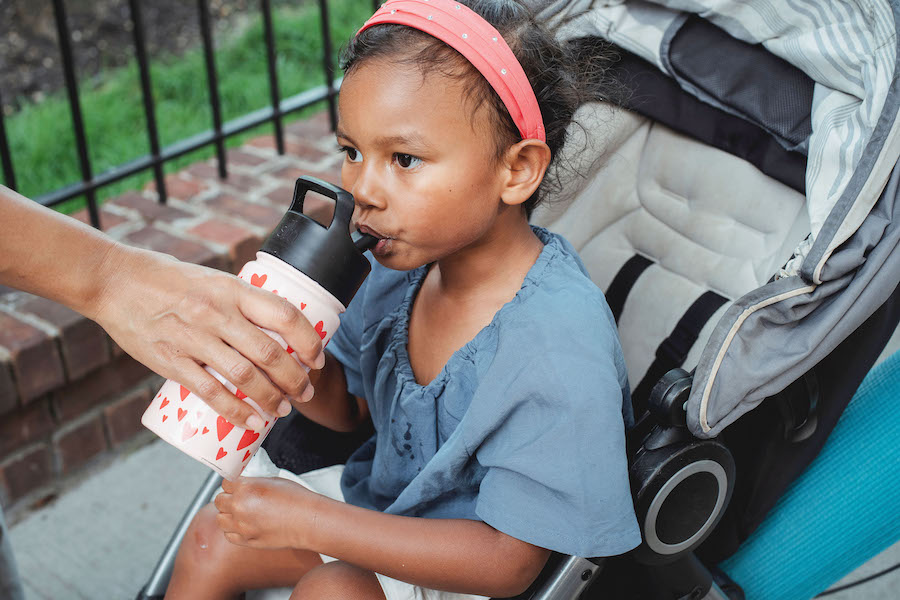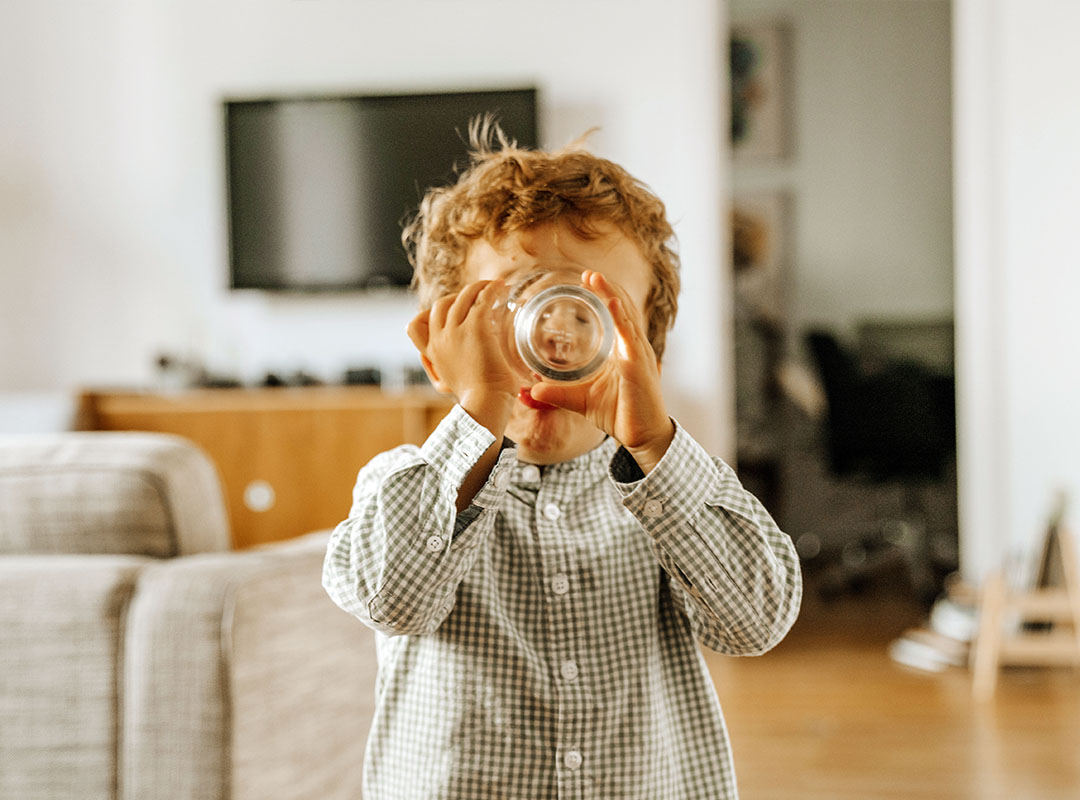Eyeing my garden this summer—undoubtedly withered and parched in the afternoon sun—my mom once remarked, “You are certainly conservative with water.” And if I ever cared for a house plant well enough to keep it around long-term, a chorus of them would surely agree. I have no idea how and when to water things.
Of course, that was all excusable when only leafy things were on the line. But add in a couple of miniature humans, and suddenly, the onus is on me to do my research. With young children at home who, despite all their complexities, come with no manual, I needed to take a deep dive into the subject. How should we water—erm, hydrate—our little ones? Here’s what I learned.
Chronically on a budget and short on time? Opt for ordering a personalized Father's Day card online and delivering it to their door. Use code EVERYMOM for 50% off your first card!
Proper Hydration is Paramount—Here’s Why
I particularly loved this take from a team of researchers published in the peer-reviewed journal Nutrition Reviews: “From the time that primeval species ventured from the oceans to live on land, a major key to survival has been prevention of dehydration.” Our ability to drink enough impacts every part of our body, from our brains to intestines to hearts to kidneys. We simply need adequate water intake to function at our best and, as the research team above alluded, to function at all.
When it comes to the classroom, science shows our kids’ water consumption makes a difference. One small British study of school children, ages 7 to 9, found that even one glass of water boosted their visual attention skills and gave them a cognitive leg up above their less-hydrated peers. Yet another research team determined drinking water improved students’ short-term memory. And every internet scroll seems to yield the same results: Humans run better on water.

Source: Kamaji Ogino | Pexels
Why Parents Should Address Water Intake Now
Another group of researchers, published in the Annals of Nutrition and Metabolism, linked poor hydration in childhood to poor hydration later on in life. The team posits that healthy, sustainable habits, like good water intake, are established in childhood. Without this baked-in habit, kids are left susceptible to a host of complications, both physical and mental, as they go on with their poorly hydrated lives.
That’s why it’s so critical for parents and caregivers to lead the charge when it comes to drinking water. Not only do little ones need to see us downing the stuff, but they also need their grown-ups to keep tabs on the amount they’re drinking, too.
How Much Water Do Kids Need?
For kids 1 to 3 years old, the American Academy of Pediatrics advises four 8-ounce cups of liquid, which they recommend include water or milk. For children 4 to 8 years old, the organization suggests five 8-ounce cups each day, though it notes fluid requirements will vary with things like physical activity, heat, and humidity.
How can we tell how hydrated our little ones are? All the expert sources point to pee, as in the darker the color, the less fluids they’re taking in. A good rule of thumb is to make sure our kids’ urine is pale in color. Anything darker requires more effort in pushing to drink liquids, particularly water.



 "
"
